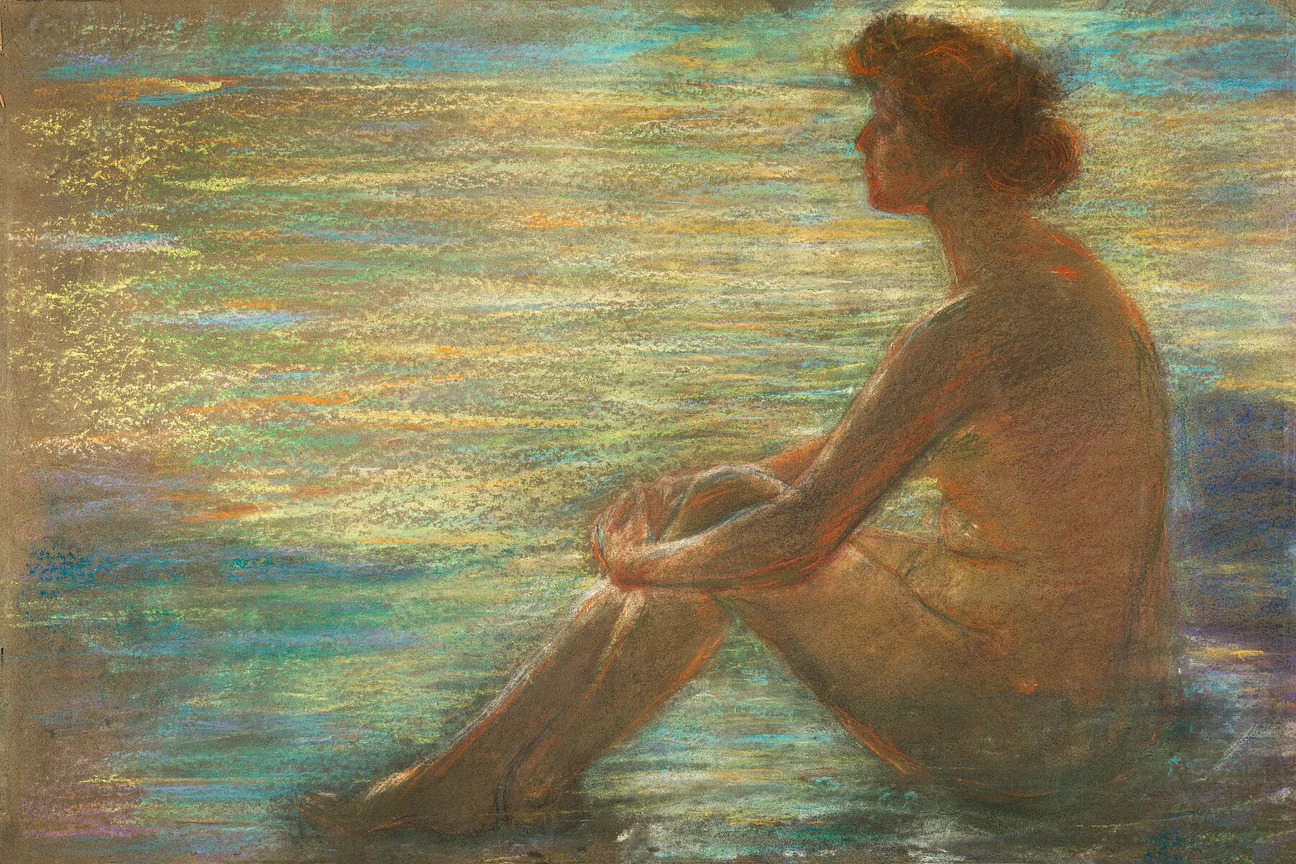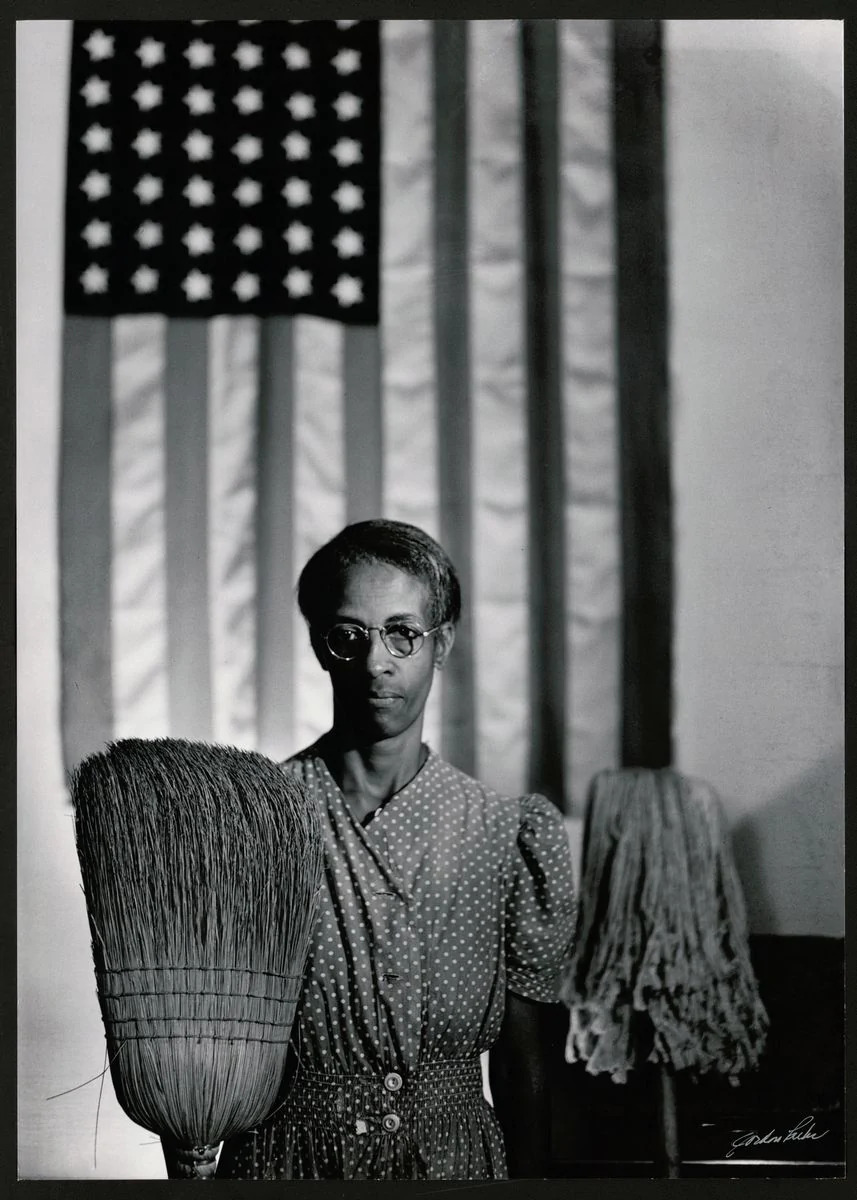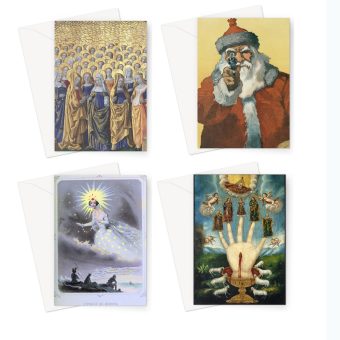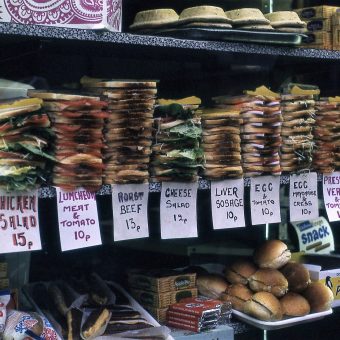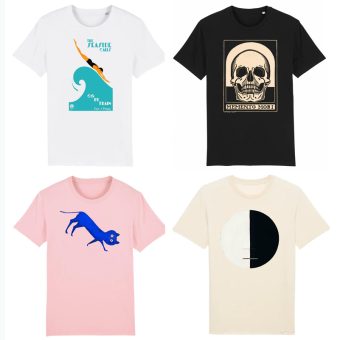“Freedom is not something that anybody can be given; freedom is something people take and people are as free as they want to be. One hasn’t got to have an enormous military machine in order to be un-free when it’s simpler to be asleep, when it’s simpler to be apathetic, when it’s simpler, in fact, not to want to be free, to think that something else is more important”
– Jame Baldwin. Nobody Knows My Name, 1960
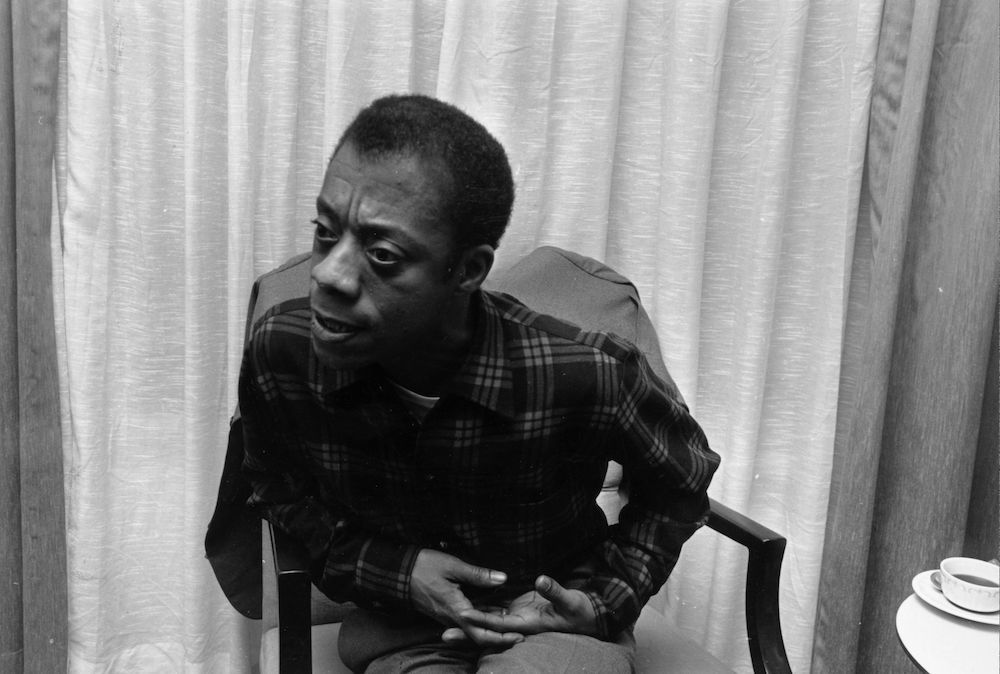
What’s the point of anything? James Baldwin attempts to answer the question of why we do anything in The Creative Process (1962). He reflects that in society artists are “a breed of men and women historically despised while living and acclaimed when safely dead”. society battles with the artist, “the incorrigible disturber of the peace.”
We dig up their bones and put a price tag on their work, auctioning thought and expression to make their work reassuringly expensive and thus valuable in the tangible sense.
For another writer, Joseph Conrad, “art itself may be defined as a single-minded attempt to render the highest kind of justice to the visible universe, by bringing to light the truth, manifold and one, underlying its every aspect.”
“We’ve got to be as clear-headed about human beings as possible, because we are still each other’s only hope,” James Baldwin told Margaret Mead in 1970 (via).
The Creative Process By James Baldwin, from Creative America, Ridge Press, 1962.
Perhaps the primary distinction of the artist is that he must actively cultivate that state which most men, necessarily, must avoid; the state of being alone. That all men are, when the chips are down, alone, is a banality – a banality because it is very frequently stated, but very rarely, on the evidence, believed. Most of us are not compelled to linger with the knowledge of our aloneness, for it is a knowledge that can paralyze all action in this world. There are, forever, swamps to be drained, cities to be created, mines to be exploited, children to be fed. None of these things can be done alone. But the conquest of the physical world is not man’s only duty. He is also enjoined to conquer the great wilderness of himself. The precise role of the artist, then, is to illuminate that darkness, blaze roads through that vast forest, so that we will not, in all our doing, lose sight of its purpose, which is, after all, to make the world a more human dwelling place.
We are alone. As Hunter S. Thompson wrote in The Proud Highway: Saga of a Desperate Southern Gentleman, 1955-1967
“We are all alone, born alone, die alone, and — in spite of True Romance magazines — we shall all someday look back on our lives and see that, in spite of our company, we were alone the whole way. I do not say lonely at least, not all the time — but essentially, and finally, alone. This is what makes your self-respect so important, and I don’t see how you can respect yourself if you must look in the hearts and minds of others for your happiness.”
For Baldwin, art connects us:
The state of being alone is not meant to bring to mind merely a rustic musing beside some silver lake. The aloneness of which I speak is much more like the aloneness of birth or death. It is like the fearless alone that one sees in the eyes of someone who is suffering, whom we cannot help. Or it is like the aloneness of love, the force and mystery that so many have extolled and so many have cursed, but which no one has ever understood or ever really been able to control. I put the matter this way, not out of any desire to create pity for the artist — God forbid! — but to suggest how nearly, after all, is his state the state of everyone, and in an attempt to make vivid his endeavor. The state of birth, suffering, love, and death are extreme states — extreme, universal, and inescapable. We all know this, but we would rather not know it. The artist is present to correct the delusions to which we fall prey in our attempts to avoid this knowledge.
It is for this reason that all societies have battled with the incorrigible disturber of the peace — the artist. I doubt that future societies will get on with him any better. The entire purpose of society is to create a bulwark against the inner and the outer chaos, in order to make life bearable and to keep the human race alive. And it is absolutely inevitable that when a tradition has been evolved, whatever the tradition is, the people, in general, will suppose it to have existed from before the beginning of time and will be most unwilling and indeed unable to conceive of any changes in it. They do not know how they will live without those traditions that have given them their identity. Their reaction, when it is suggested that they can or that they must, is panic. And we see this panic, I think, everywhere in the world today, from the streets of New Orleans to the grisly battleground of Algeria. And a higher level of consciousness among the people is the only hope we have, now or in the future, of minimizing human damage.
The artist is distinguished from all other responsible actors in society — the politicians, legislators, educators, and scientists—by the fact that he is his own test tube, his own laboratory, working according to very rigorous rules, however unstated these may be, and cannot allow any consideration to supersede his responsibility to reveal all that he can possibly discover concerning the mystery of the human being. Society must accept some things as real; but he must always know that visible reality hides a deeper one, and that all our action and achievement rest on things unseen. A society must assume that it is stable, but the artist must know, and he must let us know, that there is nothing stable under heaven. One cannot possibly build a school, teach a child, or drive a car without taking some things for granted. The artist cannot and must not take anything for granted, but must drive to the heart of every answer and expose the question the answer hides.
..
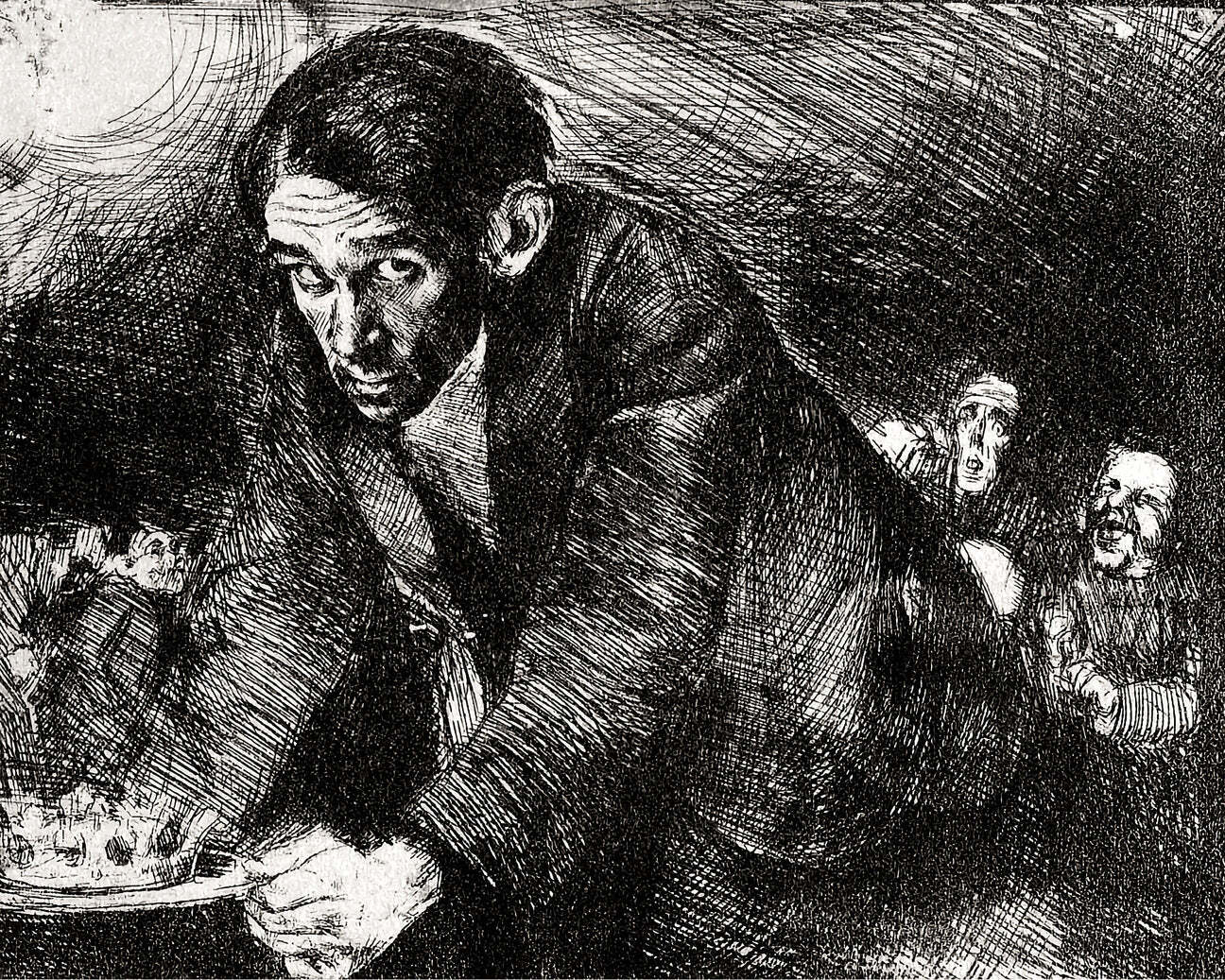
Self-Portrait by Bruno Schulz – c.1921. Buy this print.
We see others better if we learn to see ourselves:
…
One’s lover—or one’s brother, or one’s enemy — sees the face you wear, and this face can elicit the most extraordinary reactions. We do the things we do and feel what we feel essentially because we must—we are responsible for our actions, but we rarely understand them. It goes without saying, I believe, that if we understood ourselves better, we would damage ourselves less. But the barrier between oneself and one’s knowledge of oneself is high indeed.
…
We become social creatures because we cannot live any other way. But in order to become social, there are a great many other things that we must not become, and we are frightened, all of us, of these forces within us that perpetually menace our precarious security. Yet the forces are there: we cannot will them away. All we can do is learn to live with them. And we cannot leant his unless we are willing to tell the truth about ourselves, and the truth about us is always at variance with what we wish to be.
..
He then turns to the role of the artist in his native USA.
This continent now is conquered, but our habits and our fears remain. And, in the same way that to become a social human being one modifies and suppresses and, ultimately, without great courage, lies to oneself about all one’s interior, uncharted chaos, so have we, as a nation, modified or suppressed and lied about all the darker forces in our history.
…
We are the strongest nation in the Western world, but this is not for the reasons that we think. It is because we have an opportunity that no other nation has in moving beyond the Old World concepts of race and class and caste, to create, finally, what we must have had in mind when we first began speaking of the New World.
…
For an artist, the record of that journey is most clearly revealed in the personalities of the people the journey produced. Societies never know it, but the war of an artist with his society is a lover’s war, and he does, at his best, what lovers do, which is to reveal the beloved to himself and, with that revelation, to make freedom real.
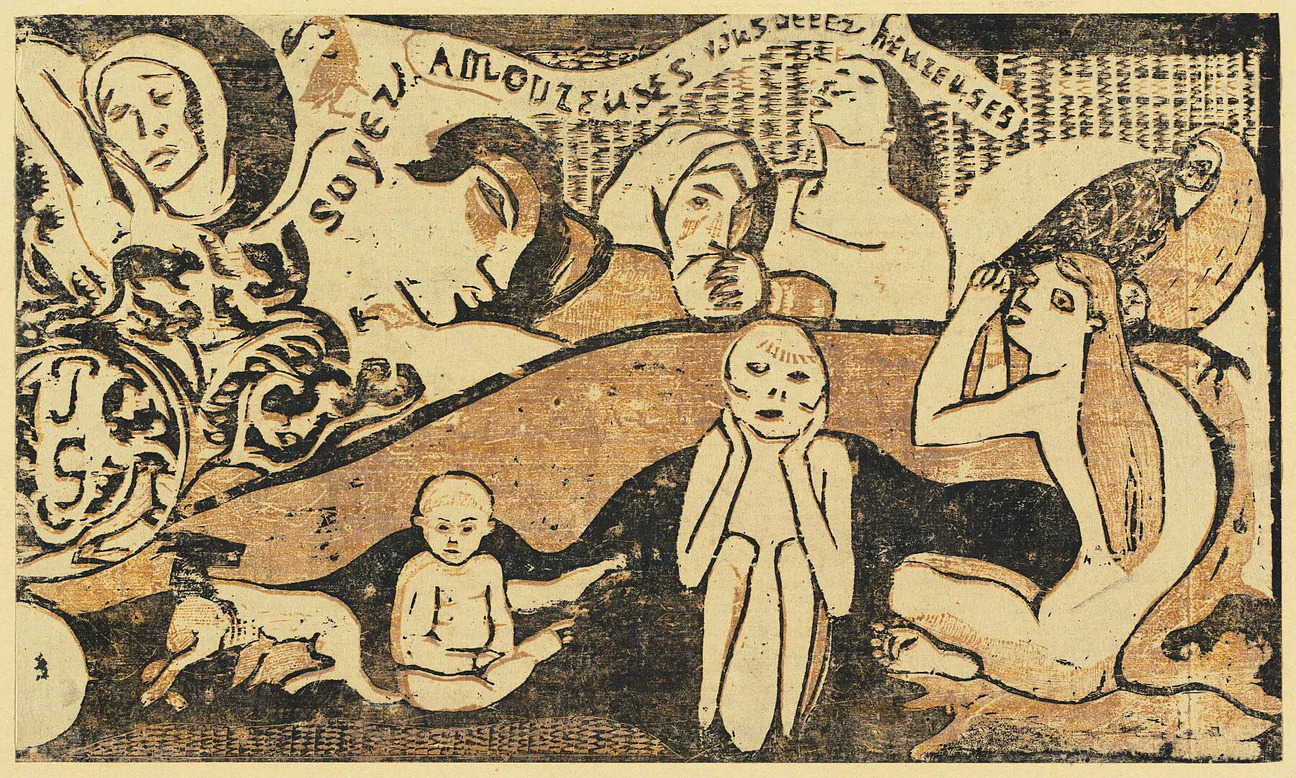
Be in Love and You will be Happy (Soyez amoureuses, vous serez heureuses) by Paul Gaugin -1895. Buy this print.
Via: The Open Space of Democracy; James Baldwin: Collected Essays (Library of America, 1998).
Would you like to support Flashbak?
Please consider making a donation to our site. We don't want to rely on ads to bring you the best of visual culture. You can also support us by signing up to our Mailing List. And you can also follow us on Facebook, Instagram and Twitter. For great art and culture delivered to your door, visit our shop.
